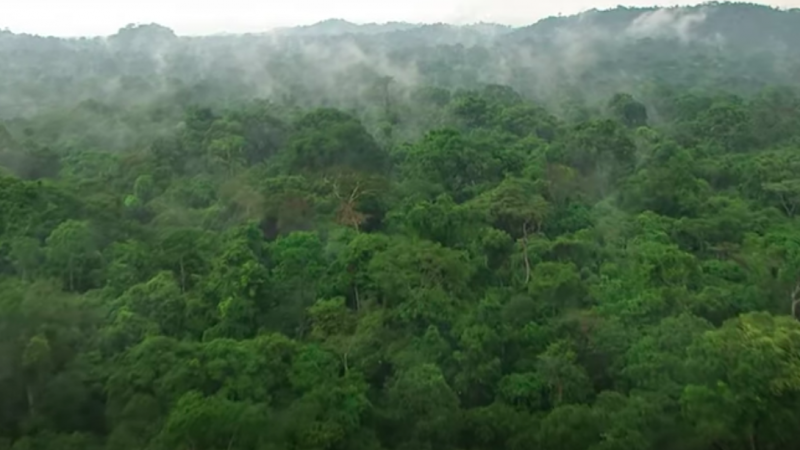'Critical carbon stores, such as ice sheets, forests, peatlands, wetlands and the ocean, must take equal priority with cutting emissions'

Wera Hobhouse is the Liberal Democrats’ Climate Change and Transport Spokesperson and MP for Bath
In May 2022, the Office for Environmental Protection (OEP) announced that key UK ecosystems are close to their tipping points. Meanwhile, the Government only hopes to stop this from getting worse by halting biodiversity loss.
Their net zero strategy also largely ignores the health of our interconnected natural systems in its plans. To name a few, the atmosphere, oceans and soil are all vital to regulating the climate.
The Stockholm Resilience Centre outlines nine boundaries that enable a ‘safe operating space’ for the survival of humanity. Climate change being just one.
Seven of the nine boundaries have now been crossed, and yet political attention to the natural world always falls short. The importance of COP15 lies here – biodiversity must take centre stage.
International cooperation to improve biodiversity is therefore essential for the survival of our planet. This year, the conference is being held in Montreal, where, unsurprisingly, Rishi Sunak is nowhere to be found.
Critical carbon stores, such as ice sheets, forests, peatlands, wetlands and the ocean, must take equal priority with cutting emissions. The Centre for Ecology & Hydrology estimates that the equivalent to 34 years of the UK’s total CO2 emissions are stored in peatlands alone. But their degradation from neglect has the opposite effect. Shockingly, the carbon this releases accounts for 4% of UK net greenhouse gas emissions.
Where peatlands store around eight times the carbon of an equivalent area of tropical rainforest, it is unjustifiable that their huge potential for reducing emissions is being ignored. With 13% of all blanket bogs being in the UK, it is a dereliction of duty for the Conservatives to ignore these effects.
The Liberal Democrats have a long history of working to protect our natural environment, including a commitment to introduce a Nature Act to restore the natural environment through large scale restorations of peatlands, woodlands, marshland and much more.
What’s more, our water ecosystems are constantly under threat from indefensible sewage discharges. Over the summer, Liberal Democrat research revealed that several sewage discharge monitors at British seaside resorts are either faulty or have not been installed. In total, one in four (24%) of sewage discharges went unmonitored last year because water companies either failed to install monitors, or the monitors weren’t working for at least 90% of the time.
These numbers are down to the Conservative government letting water companies get away with it. I am calling for a 16% sewage tax on the £2.2 billion annual profits of these companies to improve our sewage system and protect vital ecosystems.
On land, the story is similarly disappointing. Almost 50% of UK methane, 70% of nitrous oxide, and 87% of ammonia pollution comes from agriculture. Dangerous pesticides and chemical crop treatments end up poisoning our drinking water and food. Be assured that my Liberal Democrat colleagues and I will continue to oppose the use of these damaging pesticides, to protect our wild pollinators, and stop further damage to our biodiversity.
Biodiversity loss is not just a risk to our health. This year, a report by the House of Lords Library discussed the ramifications of climate change and biodiversity loss on our food security. In it was highlighted the IPCC’s assertion that if global warming was not kept below 2 degrees it would lead to ‘malnutrition and micronutrient deficiencies, concentrated in Sub-Saharan Africa, South Asia, Central and South America and Small Islands. Global warming will progressively weaken soil health and ecosystem services such as pollination, increase pressure from pests and diseases, and reduce marine animal biomass, undermining food productivity in many regions on land and in the ocean.’
The Government commissioned an independent review into the economic impacts of biodiversity loss and its results were deeply worrying. Intensive farming techniques and the use of pesticides were found to be damaging the ecosystems necessary to ensure the long-term security of food production across the globe. The CCC has also raised concerns that more frequent extreme weather events will damage crops, livestock and fisheries both in the UK and around the world. This would lead to greater volatility in our food prices domestically as a result of what could be a 20% rise in food prices globally. Of course, this will impact upon us negatively as our food prices spike but also it will test our humanity.
The tragic events in the Channel we have seen recently will become only more horrifyingly frequent as people in the global South flee the worst effects of climate change, biodiversity loss and its effects on their food systems. We must also remember our compassion when dealing with climate change and treat this a global humanitarian crisis as much as a domestic, economic one. The problems this country is having with refugees and the demonisation of our fellow human beings by some politicians will become disturbingly more frequent and the rhetoric more repulsive if we do not take drastic action now.
Saving the planet is a colossal mission that can only be solved with international cooperation due to the interconnected nature of earth’s ecosystems. Working together allows us to leverage the power of collective action to make a real and lasting difference for biodiversity.
Left Foot Forward doesn't have the backing of big business or billionaires. We rely on the kind and generous support of ordinary people like you.
You can support hard-hitting journalism that holds the right to account, provides a forum for debate among progressives, and covers the stories the rest of the media ignore. Donate today.



